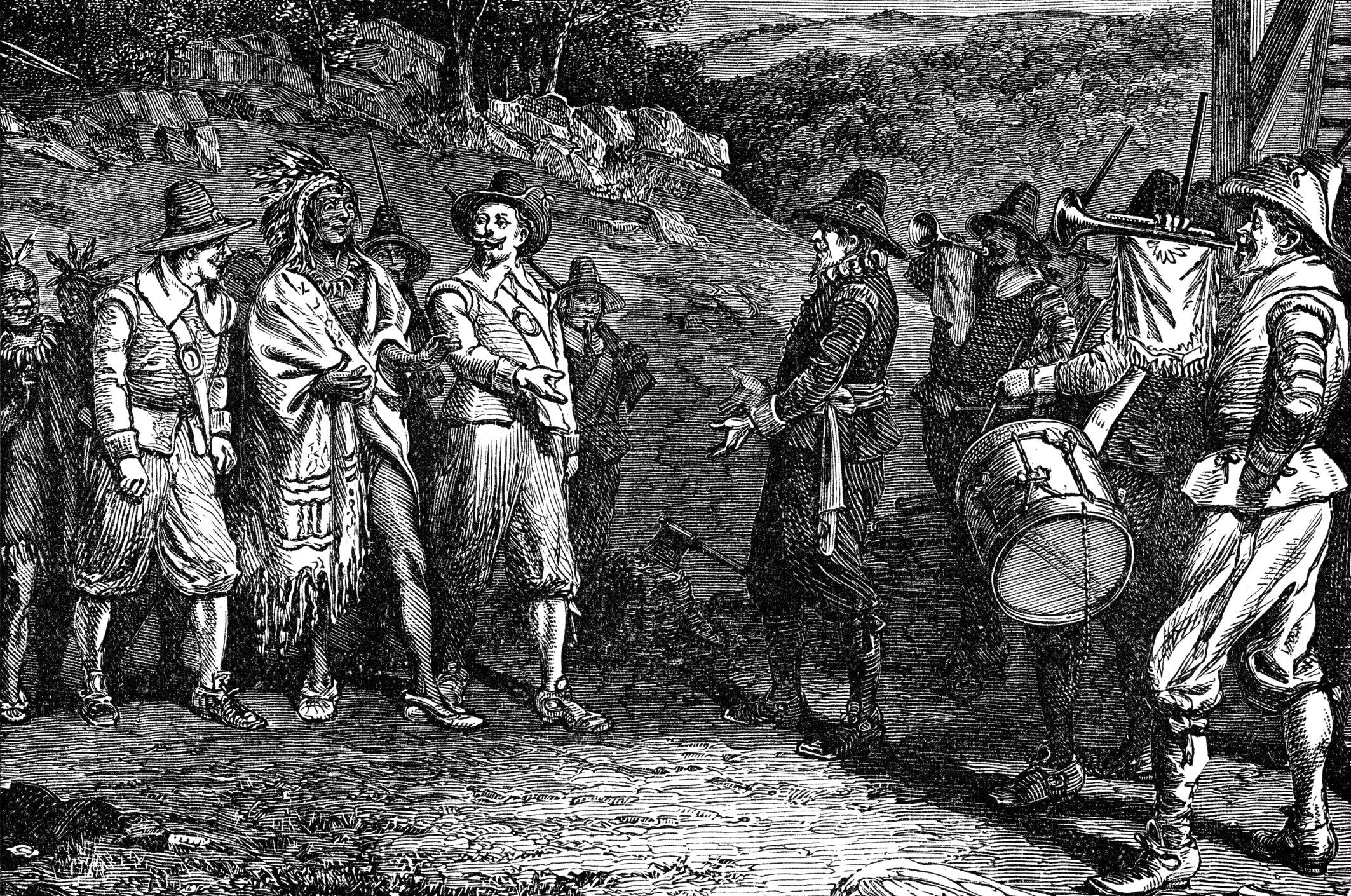This year has been flying by! Thanksgiving is waiting right around the corner. In just a couple of weeks, we’ll be gobbling down turkey, stuffed with stuffing, and pigging out on pumpkin pie.
In addition to digging into delicious traditional dishes, Thanksgiving is a time to reflect on our gratitude and hearken back to what we know about our nation’s roots. After all, we must learn history in order to learn from history.
What can we learn from the Pilgrims? More than you might think. Pilgrims traveled across the seas with months’ worth of supplies on board. But once they arrived in America, they had no other option but to become self-reliant. Few survived that first winter; but those who did built their settlement from scratch.
Pilgrims knew a thing or two about surviving tough times. Here are six preparedness lessons we can learn from the Pilgrims.
Be Mindful of the Seasons
While we can find inspiration from the right moves the Pilgrims made, it’s also important to note the mistakes they made along the way.
From legal conflicts to planning issues, the Pilgrims embarked on their voyage a little later than intended. Consequently, they traveled to an unsettled and largely unknown part of the world in the wintertime.
These less-than-favorable circumstances paired with inadequate food storage, insufficient shelter, and diminishing supplies left almost half of the Pilgrims dead once winter ended.
This tragic tale illustrates how important it is to keep warm clothing, food, and the means to construct shelter packed and ready to go in an emergency.
Using the season’s temperatures and conditions to your advantage is also essential when planting a garden. With help from the local Wampanoag tribe, the Pilgrims learned that squash and corn would thrive in their new environment, and yielded a successful crop during their first harvest.
Learn Life-Saving Skills
You can have all the emergency supplies you could possibly need; but if you don’t know what to do with your survival gear, it won’t be of much use to you.
Not only were the Pilgrims short on supplies once they made it to their destination, but they lacked many of the skills needed to survive in the New World on their own.
If you have a supply of seeds, be sure to learn how to till the ground, plant the seeds, and care for them until it’s time for their harvest. If you have emergency food stocked up, make sure you know how to prepare it with the appropriate cookware. If you have a hatchet and other tools, know how to wield them.
Build Community
Communities thrive when the people within them share knowledge, skills, resources, and camaraderie with one another.
If not for the kindness of the local Wampanoag tribe upon the Pilgrims’ arrival, the remaining Pilgrims would not have survived that first winter season. They were prepared for their voyage, but not quite ready for what awaited in the New World.
In addition to providing the Pilgrims with much-needed food, the Wampanoag offered other supplies as well as taught them invaluable farming and hunting techniques. Without that assistance and education, more Pilgrims would have perished. Instead, the Pilgrims learned to become self-sufficient in their new environment.
Like the Wampanoag, those in the emergency preparedness community need to exchange tips and ideas, share knowledge, and help others who want to prepare. Get to know your neighbors, too! They can become a lifeline in an emergency.
Stand Firm in Your Beliefs
The Pilgrims first fled to Holland to protect and practice their beliefs, then took off to the New World for the same reason.
They made this difficult decision because they believed it was best for their families and futures. Even when faced with bumps in the road, serious illnesses, limited supplies, and other challenges, the Pilgrims remained dedicated to their cause.
Preparedness is rooted in similar motivations: wanting the best for your family, particularly in the wake of the worst-case scenario.
This likely comes as no surprise because you may have already experienced it, but oftentimes those who believe in preparedness are mocked for being fearful or paranoid.
Take note from the Pilgrims and hold on tight to your beliefs. You know that fear and paranoia are not what inspire you to prepare. Your family and your future are the reasons why you prioritize emergency preparedness!
Move Forward with Gratitude
What the Pilgrims lived through is equivalent to a modern-day disaster. Insufficient long-term supplies, harsh weather conditions, and widespread contagious illness.
The Pilgrims who made it through that first winter season certainly didn’t have their survival in the bag for long. Living in the New World was hard, and even in warmer weather and more tolerable conditions, survival was tenuous.
That painful truth aside, the Pilgrims still found the time to express gratitude for their meager successes. Every step forward was a reason to celebrate!
When you’re overwhelmed with pressure to mark things off your preparedness checklist or generally not feeling fully prepared, take a step back and look at how far you’ve come over the last month, quarter, and year. You may never feel completely prepared, but you’re making more progress than you think you are. Be grateful for that!
Never Give Up
If the Pilgrims could stick it out and survive a treacherous overseas expedition, bitterly cold weather, disease, and famine, then surely you can achieve the preparedness goals you want to meet.
Assemble those emergency kits, build your long-term food supply, stock up on solar-powered lights and other gear, and keep going in the direction of disaster preparedness. The Pilgrims never gave up, and neither should you!


1 comment
Robyn Card
Thank you !!! Even though I have and do work on preparedness all the time, it’s good to have some fresh reminders of the basics!! I know you are a honest and dependable company!!!